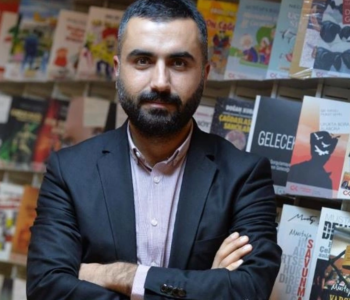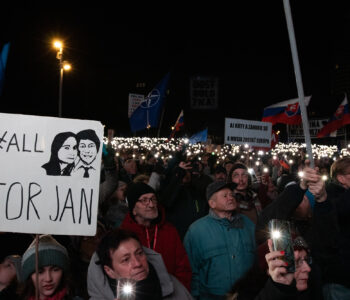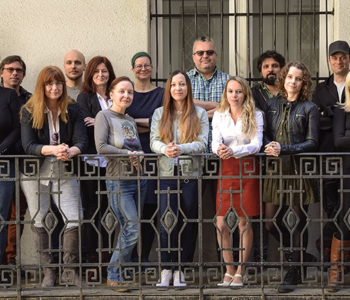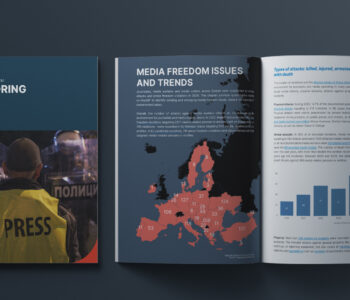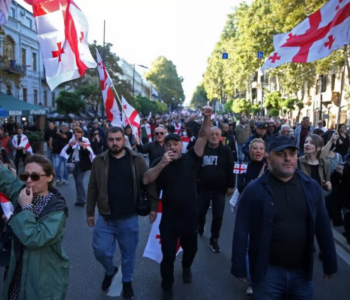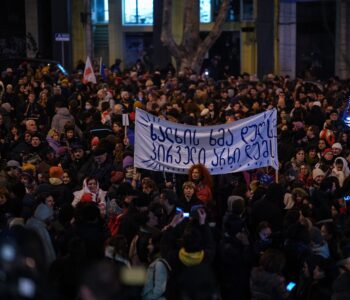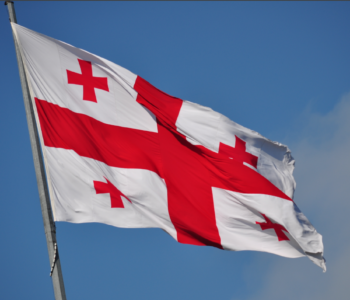
Finland: Appeal court verdict on Helsingin Sanomat state secrets case sends a chilling message
Alarm after journalist given suspended prison sentence for unpublished article.
02.07.2025
The International Press Institute (IPI) and its Finnish National Committee express alarm over the recent verdict by the Court of Appeal in Finland to uphold the suspended prison sentence and fine handed down to two journalists from leading daily newspaper Helsingin Sanomat over their reporting on the country’s military intelligence services.
IPI and its Finnish Committee stress that the verdict by the Helsinki Court of Appeal against Tuomo Pietiläinen and Laura Halminen poses serious questions for the freedom of the press in Finland and the use of national security arguments to restrict public-interest reporting Particularly concerning is that part of the verdict concerned an unpublished article.
On 1 July, the appeal court confirmed the 2023 conviction of the two journalists by the lower Helsinki District Court and found them guilty of “revealing a security secret” through their reporting of classified information, which had centred on the Finnish Defence Forces’ Signal Testing Centre and military intelligence operations. Disclosing a security secret is classified as a crime of treason under Finnish law.
The appeal court also overturned one element of the lower court’s verdict and additionally found the journalists guilty of “attempting to reveal a security secret”. As the journalists had drafted a follow-up article for publication, they were charged under a clause of Finland’s national security law of “attempting” to reveal classified information – even though it was never actually published by the newspaper.
In its verdict, the court upheld the four-month suspended prison sentence handed down to Pietiläinen, who wrote the article, and the fine for Halminen, who had contributed to the piece. Both have since left the newspaper. It also upheld the acquittal of Kalle Silfverberg, the editor of the political department at the time. Prosecutors had demanded prison sentences for all three journalists.
“Today’s verdict risks a chilling effect on journalistic reporting on national security in Finland and raises questions about protections for media freedom in Finland”, said IPI Executive Director Scott Griffen. “While courts can be asked to strike a balance between journalistic freedom and national security, in this case the court recognized the public interest nature of the reporting and found no evidence of concrete harm. IPI believes that this criminal sentencing is disproportionate and not justified by the facts of the case.
“We are particularly concerned by the fact that a journalist can be given a prison sentence for simply writing – not even publishing – an article which handles classified information, which poses a clear risk to the standard process of investigative journalism.”
Anne Leppäjärvi, the chair of IPI’s Finnish National Committee, said: “The key point is that the part of the verdict was based on unpublished drafts and resulted in a suspended prison sentence. The chilling effect on investigative journalism is quite evident.
“The verdict raises the question of how unfamiliar the journalistic process is to our legal system. The case also sets a dangerous precedent where journalists can be prosecuted simply for drafting articles based on sensitive information or working on unreleased materials.
“Finland has long been proud of its democracy and press freedom, and instead of defending these values, such rulings risk eroding them.”
IPI said it supported the appeal of the case to the Finnish Supreme Court.
Lengthy criminal trial
The criminal case began in December 2017 when Helsingin Sanomat started to publish a series of articles on plans to give Finland’s security services greater powers to carry out surveillance and covert operations domestically and abroad. The articles – now known as the Viestikoekeskus case – centred on the operations of the Finnish Defence Intelligence Agency. The basis of the reporting was taken from classified information that had been acquired by Helsingin Sanomat.
On December 17, 2017, police raided the apartment of Halminen, seizing her computer as well as flash drives. Only four years later did prosecutors first announce the charges for disclosure and attempted disclosure of state secrets. All three journalists faced between four months to four years in prison.
The newspaper and the defence lawyers of the two journalists always maintained that the articles did not contain any state secrets, that the information was years old at the time of publication, and that all information that was published in the story was available in public sources. The defendants denied all charges and maintained their innocence throughout the years-long court process.
The Finnish Defence Forces was made aware that Helsingin Sanomat was investigating their intelligence operations and were provided detailed information on what the newspaper planned to publish. The intelligence authorities did not reach out to the editorial management of Helsingin Sanomat prior to publication to request the information not be published.
In the initial lower court verdict – which IPI criticised at the time – Helsingin Sanomat was ordered to remove the article from their website, which it compiled with. The District Court had initially acquitted all three defendants of “attempting to reveal a security secret”.
Though the two journalists who worked on the articles were charged, neither the newspaper’s management team nor the editor-in-chief at the time were charged in relation with the publication. The verdict rules therefore that journalists can be held liable for publishing security secrets, even if the actual publication decision is made by the editorial team’s senior management.
In the latest verdict, the appeal court concluded that no evidence of concrete harm or danger to the interests of national defence or state security was identified. However, it adjudged that the article and draft had been aimed simply at revealing security secrets rather than adequately contributing to public debate, and argued the prioritisation of national security justifications did not represent a restriction of freedom of expression.
“The disclosure of security secrets or their attempted disclosure had instead posed a concrete threat to freedom of expression and the other fundamental and human rights that Finland’s national security seeks to protect. Thus, Finland’s external security overrode the defendants’ freedom of expression in these circumstances,” the ruling states.
This statement by IPI is part of the Media Freedom Rapid Response (MFRR), a Europe-wide mechanism which tracks, monitors and responds to violations of press and media freedom in EU Member States and Candidate Countries.

